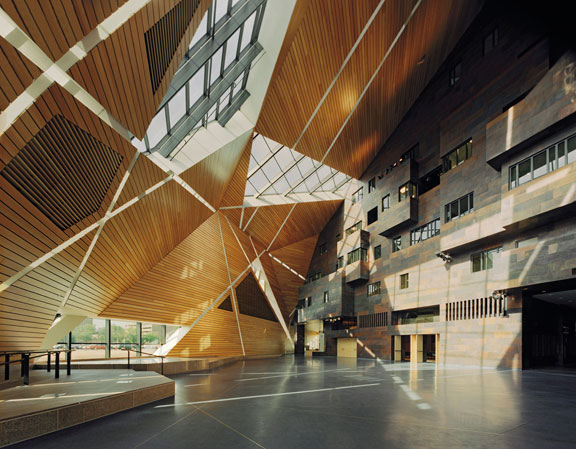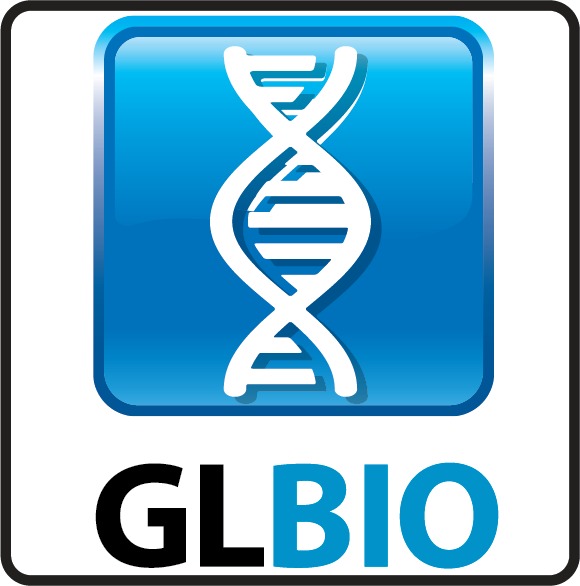KEYNOTE SPEAKERS
 Lorin Crawford, PhD
Lorin Crawford, PhD
Brown University
United States of America
Lorin Crawford is a Senior Researcher at Microsoft Research New England. He also holds a position as the RGSS Assistant Professor of Biostatistics at Brown University. His scientific research interests involve the development of novel and efficient computational methodologies to address complex problems in statistical genetics, cancer pharmacology, and radiomics (e.g., cancer imaging). A central theme of Dr. Crawford’s research program is to take modern machine learning approaches and develop theory that enable their interpretations to be related back to classical genomic principles. His most recent work has earned him a place on Forbes 30 Under 30 list, The Root 100 Most Influential African Americans list, and recognition as an Alfred P. Sloan Research Fellow and a David & Lucile Packard Fellow for Science and Engineering.
- top -
 Nadia El-Mabrouk, PhD
Nadia El-Mabrouk, PhD
University of Montreal
Canada
Nadia El-Mabrouk is full professor at the Computer Science Department and member of the Centre de Recherche Mathématiques at the University of Montreal. She has a longstanding experience in developing algorithms for comparative genomics and especially genome rearrangements, gene tree reconstruction and Gene tree/Species tree reconciliation. She is involved, each year, in the program committee of some of the most popular conferences in computational biology such as RECOMB, ISMB, WABI and APBC. In particular, she acted as the ISMB Proceeding Co-chair in 2018 and 2019. She organized two RECOMB Comparative Genomics Workshops in Montreal. Her research appears in a variety of computer science, bioinformatics and life science journals, among them IEEE/ACM, Molecular Biology and Evolution, Bioinformatics, Nature Scientific Reports and BMC-Genomics.
- top -
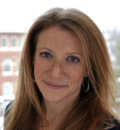 Noelle Noyes, PhD
Noelle Noyes, PhD
University of Minnesota
United States of America
Dr. Noelle Noyes is a veterinary epidemiologist in the Veterinary Population Medicine Department at the University of Minnesota. Noelle received her BA in European Studies from Amherst College, with a concentration in Asian Languages and Civilizations. She received her MA from Osnabrück Universität, Germany while conducting independent research on an Alexander von Humboldt Fellowship and bartending at the local kneipe. She then worked as a consultant for Mercator Partners in Boston, specializing in innovation strategy and mergers/acquisitions for high-tech companies. After deciding that corporate American wasn't for her, Noelle decided to pursue veterinary school. While waitressing and wrangling cows, dogs and cats (not at the same time), Noelle took all of the science pre-reqs for vet school and was accepted into the DVM-PhD program at Colorado State University, where she received her doctorate in epidemiology, a USDA NIFA post-doctoral fellowship, and her veterinary degree (large animal medicine). Dr. Noyes values diversity, ingenuity, and genuineness.
- top -
 Michael Osterholm, PhD
Michael Osterholm, PhD
University of Minnesota
United States of America
The author of more than 315 papers and abstracts, including 21 book chapters, Dr. Osterholm is a frequently invited guest lecturer on the topic of epidemiology of infectious diseases. He serves on the editorial boards of nine journals, including Infection Control and Hospital Epidemiology and Microbial Drug Resistance: Mechanisms, Epidemiology and Disease, and he is a reviewer for 24 additional journals, including the New England Journal of Medicine, the Journal of the AmericanMedical Association, and Science. He is past president of the Council of State and Territorial Epidemiologists (CSTE) and has served on the CDC's National Center for Infectious Diseases Board of Scientific Counselors from 1992 to 1997. Dr. Osterholm served on the IOM Forum on Microbial Threats from 1994 through 2011. He has served on the IOM Committee on Emerging Microbial Threats to Health in the 21st Century and the IOM Committee on Food Safety, Production to Consumption, and he was a reviewer for the IOM Report on Chemical and Biological Terrorism. As a member of the American Society for Microbiology (ASM), Dr. Osterholm has served on the Committee on Biomedical Research of the Public and Scientific Affairs Board, the Task Force on Biological Weapons, and the Task Force on Antibiotic Resistance. He is a frequent consultant to the World Health Organization (WHO), the National Institutes of Health (NIH), the Food and Drug Administration (FDA), the Department of Defense, and the CDC. He is a fellow of the American College of Epidemiology and the Infectious Diseases Society of America (IDSA).
- top -
CALL FOR SUBMISSIONS
Links in this page: General Submission Information | Full Papers for Oral Presentation | Abstracts for Oral Presentation | Poster Information | Questions
General Submission Information
All Submissions for GLBIO: https://easychair.org/my/conference?conf=glbio2021
Submissions are invited for full papers, oral presentation abstracts, and posters at the 14th Great Lakes Bioinformatics Conference, an official conference of the International Society for Computational Biology. This is an invitation to scientists and professionals working in the fields of bioinformatics and computational biology to submit high quality original research papers for presentation at GLBIO 2021. Authors of papers and oral abstracts that are accepted to the conference will present their work at the conference (longer talks for full papers, shorter talks for the abstracts). Accepted full papers will be considered for inclusion in a PLOS special collection devoted to GLBIO 2021. Individual papers in the PLOS collection will appear in PLOS Computational Biology or PLOS One, according to the authors’ preference.
A wide definition and inclusion of bioinformatics/computational biology will be considered, and topics of interest include the following:
- Algorithms & Machine Learning
- Bioinformatics Education
- Biostatistics
- Cheminformatics
- Clinical & Health Informatics
- Databases, Ontologies & Biocuration
- Disease Models & Molecular Medicine
- Epidemiology & Biodiversity
- Evolutionary, Comparative Genomics & Phylogenetics
- Gene Regulation & Transcriptomics
- Genome Informatics
- Image Analysis
- Macromolecular Structure & Function
- Metagenomics
- Microbiome Informatics
- Network Biology
- Proteomics & Metabolomics
- Sequence Analysis
- Synthetic Biology
- Systems Modeling
- Text Mining & Natural Language Processing
- Visualization
Key dates: Click here Conference website: www.iscb.org/glbio2021
Submission website: https://easychair.org/my/conference?conf=glbio2021
Special Sessions: Authors can request consideration by special sessions in Easychair. Please carefully review the information below before submitting in Easychair.
Sessions that will consider Full papers and Abstracts
Sessions that will consider Abstracts only
Full Papers for Oral Presentation submissions to GLBIO 2021 should be prepared using PLOS ONE or PLOS Computational Biology format (see below on how to choose the journal). Submissions to GLBIO should be made via Easychair and the deadline is February 5th, 2021. Authors of all full papers that are accepted for oral talks at the conference will have the option of being considered for publication in a PLOS ONE/PLOS Computational Biology Collection devoted to the GLBIO 2021 conference (choice of journal for individual papers is the authors’ – see below). Prior to the submission to the PLOS manuscript submission system, authors who decide to proceed with this option will be expected to address the reviewers’ comments received during the GLBIO review process (and if the authors desire, potential feedback from the audience received during their GLBIO oral talk presentation). Please note that such revised papers will be subject to additional peer review by the chosen journal (see below), where members of the PLOS Editorial Board who will handle the papers will, whenever possible, invite the same reviewers that have participated in the GLBIO review process.
We will follow up after the conference with the authors of all full papers that are accepted for oral talks at GLBIO regarding instructions on how to submit to the GLBIO 2021-related PLOS ONE/PLOS Computational Biology Collection. Authors will be required to submit their revised manuscript to the relevant PLOS journal between May 14th, 2021 and July 31st, 2021 (note that the authors will hear back from GLBIO about their papers decision by March 12th, 2021). Note that in the past, the average time to publication for the GLBIO papers submitted to PLOS was about half the overall PLOS ONE average.
Authors are responsible for any fees or expenses with regards to the PLOS ONE/PLOS Computational Biology Collection publication of their paper. Currently, the PLOS ONE article processing charge is $1,695 and the PLOS Computational Biology article processing charge is $2,500. PLOS will also apply a Collection surcharge, the amount of which has yet to be confirmed. For the GLBIO 2019 PLOS Collection, the surcharge amounted to $500 for PLOS ONE and $750 for PLOS Computational Biology.
The choice of the journal (PLOS ONE versus PLOS Computational Biology) should be made by the authors based on how well the scope of their paper matches the scope of the given journal. PLOS ONE scope is described here. PLOS Computational Biology scope is described here. PLOS Computational Biology scope can be thought of as being more restrictive than that of PLOS ONE, e.g., PLOS Computational Biology papers & should provide profound new biological insights. All papers that are accepted for oral talks at the GLBIO conference should by default match with the scope of PLOS ONE, and a subset match with the scope of PLOS Computational Biology. If an accepted GLBIO paper is submitted to PLOS Computational Biology but it is judged that the paper's scope does not match the scope of the journal, the paper will be transferred to PLOS ONE instead. If both journals fit the scope of the given paper, a factor that the authors might wish to consider when choosing the journal could be the associated publication fees (see above).
For full paper submissions, GLBIO does not accept work previously published through a peer-review mechanism, or work that is/will be under review elsewhere. This is because full paper submissions to GLBIO are considered as submissions to both GLBIO and PLOS ONE/Computational Biology. If authors wish to submit to GLBIO work that was published or is/will be under review elsewhere, they should do so as a short abstract rather than a full paper. Please note that conference presentations, posting on recognized preprint servers (such as Arxiv, bioRxiv and PeerJ preprints), or posting on a personal or employer's website do not constitute prior publication.
CLICK HERE TO SUBMIT
- top -
Full Papers for Oral Presentation
Full Papers for Oral Presentation submissions to GLBIO 2021 should be prepared using PLOS ONE or PLOS Computational Biology format (see below on how to choose the journal). Submissions to GLBIO should be made via Easychair and the deadline is February 5, 2021.
- top -
Abstracts for Oral Presentation
Abstracts for Oral Presentation submissions to GLBIO 2021 should be a page in length (approximately 600 words) and have no figures. Adding references to already published papers is recommended where appropriate. Submission deadline in Easychair is March 1, 2021.
All accepted abstracts for oral presentations will have the chance to publish their work in the ISCB Community Journal and will be contacted after acceptance about this opportunity.
CLICK HERE TO SUBMIT
- top -
Poster Information
Abstracts for Poster submissions to GLBIO 2021 should be half a page in length (approximately 300 words) and have no figures. Submission deadline in Easychair is March 1, 2021 for Posters and April 16, 2021* for Late Breaking Posters.
* If accepted, Poster Presenters will gain access to the conference platform on Tuesday May 4, 2021. The deadline to submit your PDFs and recording is Friday, May 7, 2021.
We also encourage all participants to submit their posters and slides (for free) to The Great Lakes Bioinformatics Conference (GLBIO) conference channel in the ISCB Community Journal.
Accepted posters will be viewable in a Virtual Poster Hall. When preparing accepted posters please note that your poster will need to be sent to us in two formats - a PDF or PNG of the poster and a 3-5 minute flash talk video not to exceed 100MB.
CLICK HERE TO SUBMIT
- top -
Questions
For any GLBIO questions, please contact: Bel Hanson, ISCB Operations and Programs Senior Manager, at This email address is being protected from spambots. You need JavaScript enabled to view it.
- top -
 Lorin Crawford, PhD
Lorin Crawford, PhD Nadia El-Mabrouk, PhD
Nadia El-Mabrouk, PhD Noelle Noyes, PhD
Noelle Noyes, PhD Michael Osterholm, PhD
Michael Osterholm, PhD
